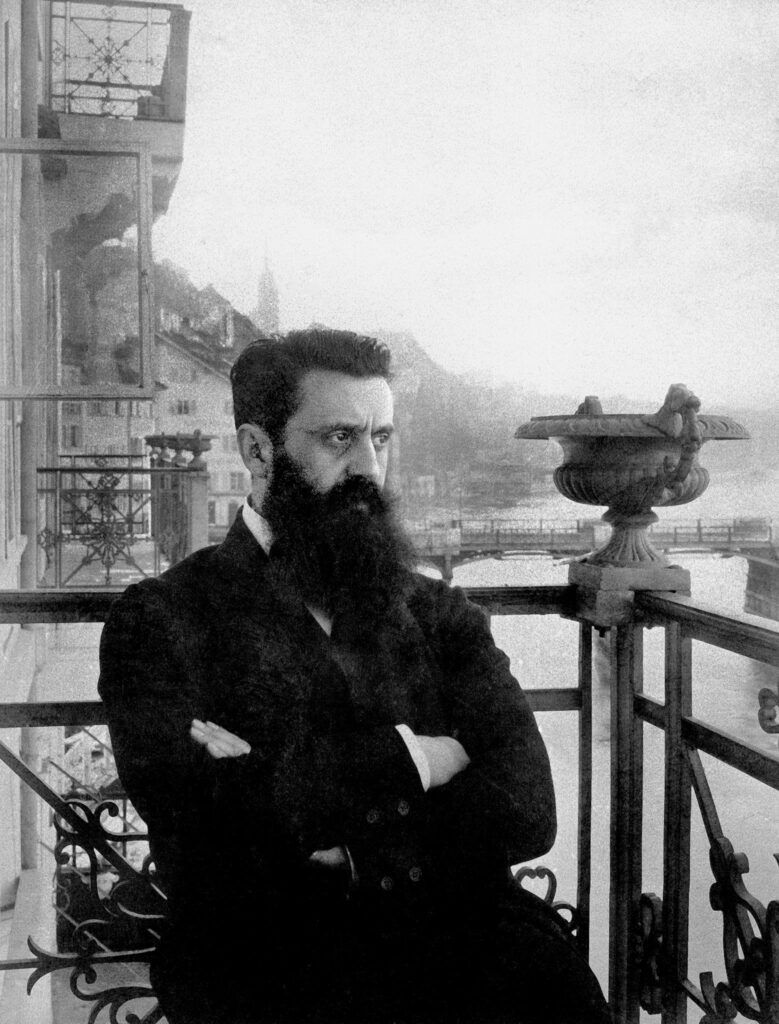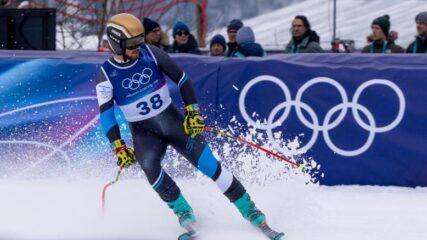July 3, 1904
Theodor Herzl, the “father of modern Zionism,” dies of cardiac sclerosis at age 44 in the village of Edlach, Austria. His will calls for no speeches, flowers or pomp at his funeral, although 6,000 people form a procession behind the hearse carrying his body to the cemetery, and David Wolffsohn delivers a brief eulogy. Herzl’s son, Hans, who is 13, recites the Kaddish. The will also requests that the Jewish people bring his remains to Israel, a wish that is fulfilled when his body is reburied on Mount Herzl in 1949. The Knesset chooses the anniversary of Herzl’s death in 1950 to introduce and enact the Law of Return.
Born in Pest, Hungary, and raised with a largely secular upbringing, Herzl was working as a journalist in Vienna when he covered the treason trial of Alfred Dreyfus in France. The Jew-hatred he observed convinced him that full Jewish acceptance in Europe was impossible and that Jews would never be treated as political equals without a state of their own. He published “Der Judenstaat” (“The Jewish State”) in 1896. He organized the First Zionist Congress in Basel, Switzerland, in 1897, and maintained the position of president at each Zionist Congress until his death.
The final year of Herzl’s life included the debate over the Uganda Proposal at the Sixth Zionist Congress, an unsuccessful effort to win Pope Pius X’s support for Zionism, and travel across Europe and the Middle East. The day before his death, Herzl told the Rev. William Hechler: “Greet Palestine for me. I gave my heart’s blood for my people.”
The bodies of two of Herzl’s children, Hans and Paulina, who die in 1930, are reburied near him on Mount Herzl in 2006. His third child, Gertrude, is killed by the Nazis at Terezin. His only grandchild, Stephen Norman, who visits Palestine in 1946 but dies that year in the United States, is reburied on Mount Herzl in 2012.









